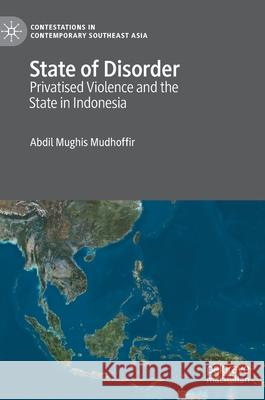State of Disorder: Privatised Violence and the State in Indonesia » książka
topmenu
State of Disorder: Privatised Violence and the State in Indonesia
ISBN-13: 9789811636622 / Angielski / Twarda / 2021 / 226 str.
State of Disorder: Privatised Violence and the State in Indonesia
ISBN-13: 9789811636622 / Angielski / Twarda / 2021 / 226 str.
cena 484,18
(netto: 461,12 VAT: 5%)
Najniższa cena z 30 dni: 462,63
(netto: 461,12 VAT: 5%)
Najniższa cena z 30 dni: 462,63
Termin realizacji zamówienia:
ok. 16-18 dni roboczych.
ok. 16-18 dni roboczych.
Darmowa dostawa!
Kategorie BISAC:
Wydawca:
Palgrave MacMillan
Seria wydawnicza:
Język:
Angielski
ISBN-13:
9789811636622
Rok wydania:
2021
Wydanie:
2022
Numer serii:
001055527
Ilość stron:
226
Waga:
0.54 kg
Wymiary:
21.01 x 14.81 x 2.06
Oprawa:
Twarda
Wolumenów:
01
Dodatkowe informacje:
Wydanie ilustrowane











